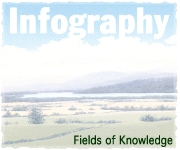
 | |
English Vocabulary | |
The following sources are recommended by an expert whose research specialty is the development of English vocabulary. |
· Agnes, Michael, ed. Webster's New World College Dictionary. Macmillan, most recent edition. The best of the collegiate-size dictionaries, it is also The New York Times's and Associated Press's dictionary of first reference. Clear definitions and etymologies, and hundreds of synonymies, which explain the differences between the entry you are at and its synonyms.
· Brewer, Ebenezer Cobham. Brewer's Dictionary of Phrase and Fable. Harper and Row, 1970. The derivation and meanings of words, phrases, expressions and allusions originating in art, history, literature, religion and many other fields.
· Fry, Edward Bernard, Jacqueline E. Kress, and Dona Lee Fountoukidis. The Reading Teacher's Book of Lists. Prentice Hall, 2000. An invaluable language arts teaching tool from kindergarten through high school, covering a myriad of vocabulary areas. Teachers treasure its usefulness.
· Hayakawa, S.I. Use The Right Word. The Reader's Digest Association, 1968. A superb thesaurus that doesn't just list synonyms, but explains the shades of meaning among them.
· Partridge, Eric. A Dictionary of Slang and Unconventional English; Colloquialisms and Catch-Phrases, Solecisms and Catachreses, Nicknames, Vulgarisms, and Such Americanisms as Have Been Naturalized. Macmillan Publishing Co, 1970 (earlier and later editions available; new paperback edition is anticipated from Routledge in November 2002; first published in 1937). The recognized classic in the field. At 1,500 pages, inestimably interesting, often riotously funny, and essential for all lovers of the English language.
· Simpson, John, and Edmund Weiner, eds. The Oxford English Dictionary. Oxford University Press, most recent edition. The OED is available as a set of twenty volumes; as a one-volume edition containing everything in the twenty-volume set (nine pages of tiny print are on each page, and a magnifying glass is included); as a CD-ROM; and through the Internet. Lexicographers, scholars and writers consider it the ultimate authority on a word's derivation and meaning. For each change or nuance of a word's meaning, the OED cites the specific source and provides the example of its first appearance in written English. Samples of OED entries can be seen at Tour of OED Online. http://oed.com/tour/
· Ayto, John. Twentieth Century Words. Oxford University Press, 1999. A decade-by-decade compendium of 5,000 new words or new uses of older words. Each decade is introduced with a discussion about how its words and usages reflect the events, changes and ideas of the age in which they were born.
· Greenman, Robert. Words That Make a Difference. Levenger Press, 2000. More than 1,500 passages from The New York Times illustrating in context currently used words that will enhance one's writing and speaking, including formal words, slang and Yiddishisms. Beyond its own usefulness, this book alerts readers to the value of a good newspaper as a source of vocabulary enrichment.
· Mencken, H.L. The American Language. Alfred A. Knopf, 1999. The engrossing and often witty classic of information on the origins, growth and richness of the American language.
· Speake, Jennifer, ed. The Oxford Dictionary of Foreign Words and Phrases. Oxford University Press, 1998. Not only definitions, but citations showing how the word is used. The index is wonderful in itself, a list of the book's entries broken down, first, by the languages they were borrowed from and then by the centuries when they first came into use among English speakers.
· Wentworth, Harold, and Stuart Berg Flexner. Dictionary of American Slang. Thomas Y. Crowell, 1975. Not only a great reference, but interesting enough to read for fun.
"The Infography about English Vocabulary"
http://www.infography.com/content/099966214550.html
© 2009 Fields of Knowledge
Essex, Iowa 51638-4608 USA